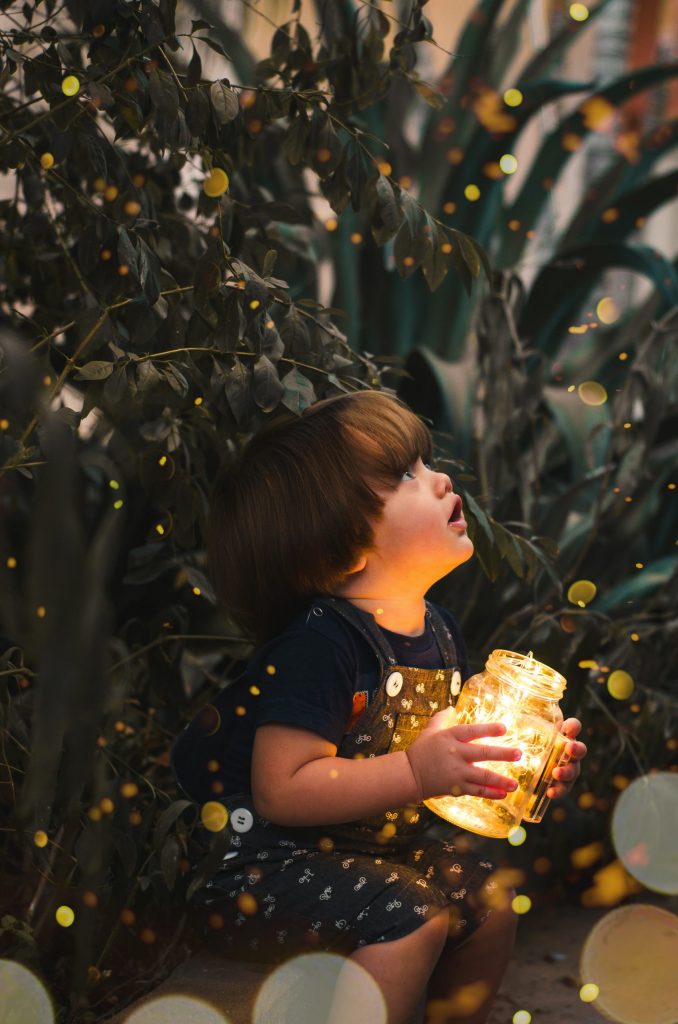
Today is International Children’s Day, proclaimed by The World Conference for the Well-being of Children in Geneva, Switzerland, in 1925. There’s also another Children\’s Day on 20 November 2018, but we suppose we can’t resent the little monkeys for getting more than their fair share – they are rather delightful, after all. But despite our collective care, love and concern for these miniature wonders, there\’s been worrying rise in childhood mental health issues – which raises the question, should we be teaching children how to be happy?
The idea that childhood should be a time of breezy carelessness has been present in our culture from about the time we stopped using them as chimney sweeps. Human beings are hugely invested in cultivating the happiness of their children, and adults become very disconcerted if they feel children are distressed – as this quote Raising Happiness: 10 Simple Steps for More Joyful Kids and Happier Parents illuminates:
“The well-being of children is more important to adults than just about anything else… More than two-thirds of adults say they are “extremely concerned” about the well-being of children, and this concern cuts across gender, income, ethnicity, age, and political affiliation.”
Even the famously fraught experience of puberty is looked at fondly, and (usually) with a certain amount of indulgence. It makes sense that teenagers are going to be stomping around, trying to go to parties they’re too young for and writing furious diary entries about the injustice of having such unreasonable parents – because that’s what they are supposed to do.
Childhood is there for endless summers, falling out of trees and giggling at sleepovers, while teenagers are free to be clueless, creative and full of heightened emotion; revelling in every discovery, disappointment, heartbreak and triumph that life throws their way.
Which is why it’s so worrying to hear a recent report by the Children’s Commissioner describing an “epidemic of anxiety” among children, with the number of young children seeing psychiatrists rising by a third. A study published in October in the BMJ that found self-harm among young teenage girls had risen by nearly 70 per cent between 2011 and 2014, and there are warnings that children are resorting to illegally acquired Xanax to help them cope.
Childhood Sadness – Whats Normal?
Crashing lows tend to come with the territory for adolescents – it isn’t easy becoming more self-aware and experiencing those first knocks to your self-esteem – but this is meant to be temporary; a learning experience and something easily remedied with a bit of adult guidance.
It’s also true that even very young children have always had to face difficulties, and we can’t completely shield them from emotional distress. Whether it’s divorce, bereavement, or even not getting on well with their siblings, children often have to confront unpleasant emotions, and allowing them the space to be unhappy and express their feelings is important.
However, these moments are simply a regrettable part of life, and if a child is generally happy, well loved and emotionally resilient, they can weather these storms – not moving on unaffected necessarily, but also not being so impacted as to find it difficult to function throughout life either.
It seems both concerning and extremely unfair that more and more children are being denied the cheerful, unselfconscious years that should be their right. The number of children referred by their schools for specialist mental health treatment has spiked by a third in the past three years, and it’s impossible not to ask, what on earth is fuelling this childhood unhappiness?
Of course, there’s many theories. Perhaps it’s smartphones, the competitive and testing-based nature of schools, the lack of community in our society. Maybe there is something inherent in the way we organise our modern world that is hostile to the developing brain and its ongoing wellbeing.
Whatever the cause, it seems more important than ever to give children all the tools they need in order to be happy.
Teaching Children How to Be Happy
To a large extent, we need to change the world in which children live to truly ensure we are giving them the best possible start in life. There are obviously factors in our society which are incompatible with human happiness – such as aggressive individualism, lack of community and inadequate mental health support. However, we are aware that this is not something that will happen overnight. On a more immediately achievable level, teaching children how to be happy will also do a great amount to help.
Part of this is lifestyle. Researchers in Finland of the Finnish Forest Research Institute found that people began to feel psychologically restored after just 15 minutes of sitting outside in both the park and forest. Allowing children to spend time in nature not only gives them an amazing playground to explore, it could also boost their mental wellbeing. And while there\’s little formal evidence to say that smartphones and tablets are making children unhappy, intuitively it feels important to cut down on children\’s screen time – where they are most susceptible to advertising and addictive social media platforms.
Cultivating a sense of optimism is also vital. Life doesn\’t go smoothly all of the time, so a natural propensity to think about things in a positive light will be a big asset to young people. In this, we feel that meditation and meditative practices can help in a significant way.
Here at Will Williams Meditation, we wouldn\’t necessarily prescribe a formal meditation practice for very young children. Generally, 10 – 15 year olds can meditate as adults do, but they only need to practise a minute for every year of their age – so a 12-year-old can do 12 minutes, for instance. In our opinion, however, the most helpful thing would be to introduce the spirit of meditation into schools, allowing more time outside of learning and the pressure to achieve where children can simply be themselves.
Our society\’s focus on success and achievement can make it difficult for those who don\’t feel that they measure up – whether socially, in their appearance, or academically – and even those young people who are \”succeeding\” can feel a huge amount of anxiety, as if any day it could all go wrong. By letting childhood be the mostly carefree time it\’s meant to be, and giving children the space to live their lives without too much pressure to perform, we should hopefully help them grow into healthy and happy adults.

The Benefits of Beeja Meditation
- Reduce stress and anxiety
- Greater clarity and calm
- Increase focus
- Enhance relationships
- Sleep better
- Feel energised



